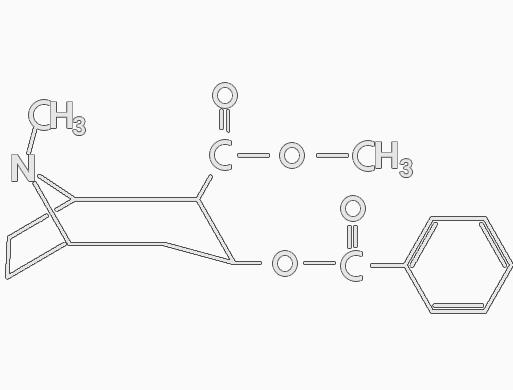Having a crack cocaine addiction is challenging to live with and while recovery is difficult, having the appropriate support can get you or your loved one through this journey and increases your chances of making a full recovery. If you are suffering from a crack cocaine addiction, it may seem like there’s no way out. A lot of patients who have tried to overcome addiction struggle with intense withdrawal symptoms and relapses, but you mustn’t give up.
Our extensive experience with treatment of dependencies to this type of substances and our multifold approach to addiction rehabilitation enable us to provide a broad safety net to assist our patients with long-term recovery from crack cocaine.

Getting Help for Crack Cocaine Addiction

Crack Addiction is a treatable disease and getting professional help is the first step in your journey towards crack addiction treatment. The reality is that having an addiction to crack cocaine puts you at risk of danger to your physical, mental and emotional wellbeing, and recovery is the only way to improve your quality of life.
Using crack cocaine places you at elevated risk of associated risky behaviors such as turning to crime to fuel your habit, using other drugs and alcohol to feel good, avoiding work or school, lying to the people who are close to you, and isolating yourself socially, putting you at increased risk of depression.
How We Treat Crack Cocaine Addiction & Abuse
We believe that addiction is a disease that can be triggered by a multitude of factors. We believe in empowering patients to take control of their lives, and we provide the necessary rehabilitation support structure to make this possible. We are a 12-step rehabilitation facility that puts a strong emphasis on communities for our patients.
Our addiction treatment process begins with thorough crack cocaine detoxification, which lasts for between 10 and 14 days. Detoxing is necessary to cleanse your body of the drug and to help manage the intense comedown and withdrawal symptoms that follow.
The withdrawal process can be very challenging so it is important to go through it in a supportive environment. During the withdrawal phase many patients may experience physical and psychological symptoms such as cravings for crack cocaine, fatigue, insomnia, nightmares and night terrors, anxiety, severe depression.
While the withdrawal phase of your crack cocaine treatment is unpleasant and uncomfortable, it is a necessary and important part of the process of treatment and rehabilitation, to the extent that patients who attempt recovery without support may be likely to relapse. Continuing to use crack cocaine can lead to permanent psychological damage and even death – but undergoing a supported detoxification process can help you break the cycle.

Crack Cocaine Addiction Treatment Programs
Why Choose United Recovery California for your crack cocaine rehab ?
-
Crack cocaine is a powerful and highly addictive drug that requires professional assistance
-
We provide customized treatment plans for patients seeking crack cocaine addiction treatment and rehab
-
We provide a supported detoxification program at the start of your addiction treatment
-
We offer a holistic approach to treatment in a medical facility
-
We offer stays in our recovery house, as well as an extended support program
Leaders in
Addiction Treatment
Recover in a
Luxury Environment
Aftercare &
Lifetime Support
How Long Does Rehab Last for Crack Cocaine Addiction?
Each patient and every addiction are different, and so every recovery process is different too. Prior to admission, every new patient is assessed and treatment plans are recommended to give you the best chances of long-term recovery.
Some of the variables that will be considered when creating your treatment plan include:
-
How long you have used crack cocaine for?
-
How much of the drug you have been using?
-
Whether you are using or have used other substances?
-
Your medical history and the presence of any mental disorders?
Because relapse rates for crack cocaine addiction are high, longer treatment programs of between 30 and 90 days are recommended for patients seeking help. Research indicates that the best outcomes are achieved when patients are on extended crack addiction treatment plans, and the most effective treatment programs for successful, long-term recovery tend to be inpatient, especially to monitor early withdrawal symptoms.
While outpatient programs are available for our crack addiction treatment, inpatient programs will offer you the most intensive support while you are in recovery. Extended care programs can assist patients who want to stabilize sobriety over the long-term.
We offer our patients a 30 to 45 day stay in our recovery house where we provide a range of healthy and fun activities to support the crack addiction treatment process. Staying in the recovery house provides our patients with a safe space where you are safeguarded against trauma. We encourage our patients to work on and define their life goals, with support from their friends and family while you have access to our recovery support groups.
At United Recovery CA, we provide a nurturing and stress-free environment to facilitate the rehabilitation process, promoting meditation and self-monitoring practices for a successful crack cocaine rehab.
Therapies during the Rehab Process
Group Sessions
Group therapy can be immensely beneficial for crack cocaine addiction. Having the support of your peers can assist you in overcoming and sustaining your independence. Many patients suffering from drug addiction find themselves in enabling environments as they have friends who support their addiction. Surrounding yourself with people you can relate to, and who can relate to you and the challenges you experience during recovery can make the difference between recovery and relapse, especially for a crack addiction.
Individual Sessions
Cognitive behavioral therapy (CBT) or ‘talking therapy’ can help patients in recovery to understand their addictions, motivation and behaviors. The goal of CBT is to empower patients to understand the effects of crack cocaine use on the body and mind, address the underlying issues that may trigger crack cocaine use and to develop strategies to help you to stay away from the drug.
Alternative Therapies
Because drug addiction is a complex disease to treat and because of the high prevalence and interplay between recovery and relapse, some patients may benefit from alternative therapies to assist with their long-term recovery. In these cases, non-mainstream treatments may be used if conventional approaches are not successful.
- Art Therapy
- Cognitive Behavioral Therapy (CBT)
- Group Therapy
- Holistic Therapy
- Life Skills Training
- Music Therapy
- Meditation
- Nutrition Therapy
- Psychotherapy
- Chiropractor sessions
- Massage Therapy
- Acupuncture
- Yoga
Do You Need Help?
Our addiction treatment team is ready to help you and your loved ones to start your crack cocaine rehab treatment. Don’t hesitate to contact us regarding assessment and admission.
Long-term Recovery from Crack Cocaine Addiction
In 2014, 22.5 million people (8.5% of the U.S. population) aged 12 or older needed treatment for an illicit drug or alcohol use problem, according to SAMHSA’s National Survey on Drug Use and Health (drugabuse.gov) but a mere 4.2 million (or 18.5%) of those people received substance abuse treatment.
The dynamics between genetics and a person’s environment account for approximately 40% to 60% of a person’s risk of addiction. Furthermore, teenagers and people who have mental health disorders are at an increased risk of drug use and drug addiction.
Because of the intensity of withdrawal, many patients who attempt to stop using crack cocaine find that they relapse without the appropriate support structures in place for their addiction treatment.
Making a long-term recovery from crack cocaine addiction and other substance use disorders is possible with professional support in a safe environment for a efficient crack cocaine rehab. Reaching out and getting help is the first step on your journey toward recovery.
Learn More About Our Aftercare Program

What is Alumni?
Our Alumni program is a dedicated community which relies on sharing, and mutual support and is sustained by our centers. Once you graduate from one of our rehabilitation programs for crack addiction, we will provide you with the opportunity to join the Alumni. There, you will meet with others who have gone through one of our rehabs to follow crack addiction treatment, and who will be there to support you in stressful times, just like you would be for them.
Crack Cocaine vs Cocaine
Crack is a form of cocaine and even though cocaine and crack look different they are the same pharmacologically. Despite their pharmacological similarities, under the Anti-Drug Abuse Act, users face more severe penalties if they are in possession of crack compared to cocaine possession.

Cocaine is a powder that is snorted, swallowed or injected, while crack is a rock that is smoked. Because it is smoked, crack can be considered more dangerous than cocaine as it takes effect much quicker and lasts for a shorter period of time. Also referred to as freebase, rocks and gravel, crack cocaine’s intense highs only last for between 5 and 15 minutes, so users tend to binge on the drug.
When you smoke crack cocaine, the drug reaches your bloodstream and gives you a much faster and more intense high than snorting cocaine. The powerful high that patients experience makes the drug easy to become addicted to. Researchersbelieve that just one hit of crack cocaine could be enough to rewire the brain’s reward centers because of the amount of dopamine that is produced. Using crack cocaine, however, stops dopamine from being recycled into the neurotransmitter that releases it, and ensures that nothing feels pleasurable to you, unless you have crack cocaine.













